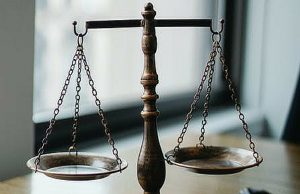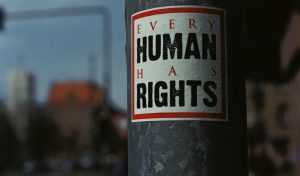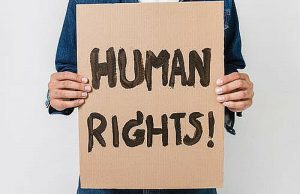Classification of Human Rights: Human rights are inalienable basic rights whereby a person is essentially entitled just by virtue of being a human being. Human rights are founded on the premise that every human being has the right to exercise his or her rights without discrimination. The many categories of human rights are examined in this article.

Recommended: Countries with the best education system in the world
1. Classic and Social Rights: The distinction between ‘classic‘ and ‘social‘ rights is one categorization utilized. ‘Classic‘ rights are frequently considered as demanding the state’s non-intervention (negative duty), while’social rights’ are seen as necessitating the state’s active action (positive obligations). To put it another way, classic rights require the state to refrain from certain activities, whereas social rights need it to grant certain assurances. Classic rights are frequently described as a responsibility to accomplish a certain end (‘obligation of outcome’), whereas social rights are described as a responsibility to provide the resources (‘obligations of behavior‘).
However, as international law has progressed, the boundary between “classic” and “social” rights has become increasingly muddled. Civil and political rights, for example, sometimes need significant public expenditure. The state is not only required to protect these rights, but also to ensure that people may properly exercise them.
As a result, the right to a fair trial, for example, necessitates the presence of well-trained judges, prosecutors, attorneys, and cops, as well as administrative assistance. Another illustration is the organization of elections, which is likewise quite expensive.
Most ‘social‘ rights, on the other hand, include provisions requiring the state to refrain from meddling with the individual’s enjoyment of the right. As various observers have pointed out; the right to food involves the right for everyone to get their own food source without interference, as various critics have pointed out; the right to housing entails the right not to be evicted forcibly; the right to work comprises an individual’s freedom to select his or her own occupation, as well as the state’s obligation to not obstruct a person’s ability to work and to refrain from policies that would raise unemployment; the freedom to construct and direct educational institutions is part of the right to education and the responsibility not to meddle with the delivery of healthcare is implied by the right to the best possible quality of health.
To summarize, the distinction between “classic” and “social” rights does not represent the nature of the duties imposed by either set of rights.

Also see: Countries with the best justice system in the world
2. Civil, Political, Economic, Social and Cultural Rights
Civil rights
The phrase “civil rights” is frequently applied to the rights enumerated in the UDHR’s first eighteen articles, practically all of which are also enumerated as obligatory treaty standards in the ICCPR. A new set of ‘physical integrity rights’ has been recognized, which involve the right to life, liberty, and dignity of the individual, as well as protection against physical aggression against the person, torture and cruel treatment, false imprisonment, incarceration, exile, slavery, and servitude, intrusion with one’s private and right of ownership, limitation of one’s freedom of travel, and free thought, conscience, and religion.

The distinction between ‘basic rights‘ and ‘physical integrity rights’ is that the former includes economic and social rights while the latter excludes rights such as privacy and ownership protection.
The right to fair treatment and protection in the law, while not exactly an integrity right, clearly qualifies as a civil right. In addition, this right is critical to the realization of economic, social, and cultural rights.
The term ‘due process rights‘ is used to refer to a different set of civil rights. These include the right to a public hearing before an independent and impartial tribunal, the ‘presumption of innocence,’ and legal help, among other things.
Also see: How to become a successful entrepreneur
Political rights
Political rights are defined as those set forth in Articles 19 to 21 of the UDHR, as well as those established in the ICCPR. They encompass freedom of expression, association, and assembly, the right to participate in one’s country’s governance, and the right to vote and run for election in legitimate periodic secret vote elections.
Economic and social rights
Articles 22 to 26 of the UDHR list economic and social rights, which are expanded and codified as enforceable treaty standards in the ICESCR. These rights create the conditions for success and happiness. Economic rights include the right to property, the freedom to employment that one chooses or accepts freely, the right to a fair salary, a reasonable workweek limit, and trade union rights. Social rights refer to the rights to health, housing, food, social services, and education that are required for a decent quality of living.
Cultural rights
Articles 27 and 28 of the UDHR mention cultural rights. They are; the right to freely engage in communal cultural life, the right to partake in scientific advances, and the right to protection of moral and material interests arising from any scientific, literary, or artistic output of which one is the creator.
Recommended: Most profitable skills to learn in 2022
3. Fundamental and Basic Rights: The right to life as well as the sanctity of the person are considered to be fundamental rights. Extensive criteria have been formed inside the UN, which have been written down in several treaties, declarations, and resolutions, notably since the 1960s, and which bring already recognized rights and policy issues that influence human development into the field of human rights.
Concerns that a wide definition of human rights might lead to the concept of “human rights violation” losing part of its meaning have prompted the creation of a distinct group under the broad category of human rights. The phrases ‘elementary,’ ‘essential,’ ‘core,’ and ‘basic’ human rights are increasingly being employed.

Also see: Advantages And Disadvantages Of a Mixed Economy
4. Other Classifications
Freedoms
Freedoms such as freedom of movement, freedom from torture, and freedom from arbitrary detention have been used to characterize preconditions for a dignified human existence. In his famous ‘Four Freedoms Speech’ to the United States Congress on January 26, 1941, US President Franklin D. Roosevelt summed up these conditions:
a. Freedom of speech and expression;
b. Freedom of belief (everyone’s right to worship God in his or her own way); and
c. Freedom from want are all examples of freedom (economic understandings that will provide a healthy peacetime living for all nation’s citizens); and
d. Fearlessness (a world-wide decrease of weaponry to such a point and in such a complete manner that no nation would be able to conduct physical aggression against any neighbor).
Also see: How to make reading fun and interesting
Civil liberties
Civil liberties is a well-known idea, especially in the United States, where the American Civil Liberties Union (a non-governmental organization) has been operating since the 1920s. Freedom of religion, freedom of the press, freedom of expression, freedom of organization and assembly, protection against invasion of privacy, protection against torture, the right to a fair trial, and the rights of workers are all examples of civil freedoms. The divide between civil and political rights is not reflected in this classification.
Individual and collective rights
While the primary goal of human rights is to protect and promote individuals (individual rights), some of these rights are exercised by groups of people (collective rights). This includes freedom of association and assembly, freedom of religion, and, most notably, the freedom to create or join a labor union.
When human rights are related to membership in a specific group, such as the right of ethnic and cultural minorities to retain their own language and culture, the collective aspect becomes even more apparent. There is a difference to be made between two sorts of rights, which are sometimes referred to as collective rights: individual rights enjoyed in conjunction with others and collective rights.
Recommended: Differences between data Science and data analytics
Conclusion
Human rights are similar to amour in that they shield you from harm. They’re similar to rules in that they tell you how to act, and they’re similar to judges in that you can appeal to them. They are abstract, just like emotions, and they belong to everyone and exist regardless of what happens.

Edeh Samuel Chukwuemeka, ACMC, is a lawyer and a certified mediator/conciliator in Nigeria. He is also a developer with knowledge in various programming languages. Samuel is determined to leverage his skills in technology, SEO, and legal practice to revolutionize the legal profession worldwide by creating web and mobile applications that simplify legal research. Sam is also passionate about educating and providing valuable information to people.